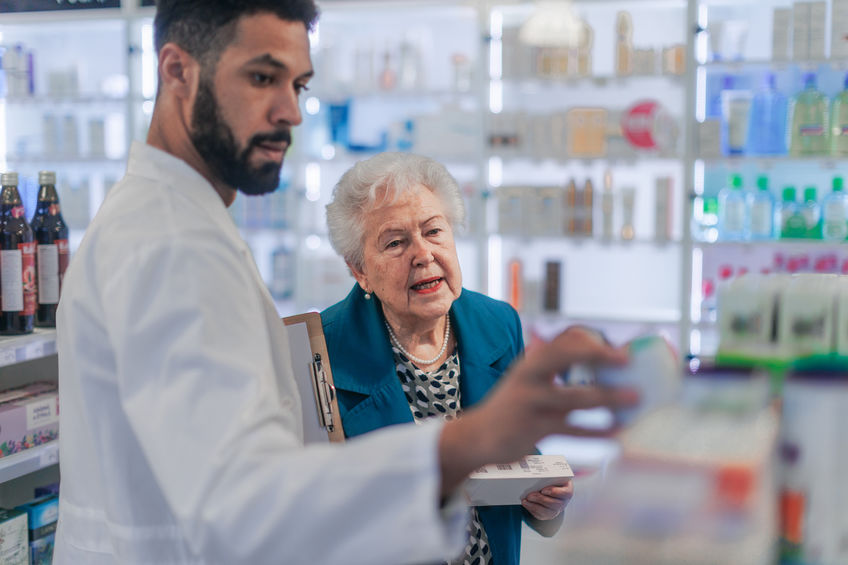When Food and Drugs Don’t Mix
Taking medications is a common part of life for many people. Whether the prescription is used temporarily to treat an illness or taken to manage a long-term illness, individuals need to use medication wisely. Along with not taking too much of a drug in a single setting, many people should know that some medications may create unwanted side effects when taken with certain foods. When in doubt, consider speaking with a pharmacist for safety recommendations.

Calcium and antibiotics
Many people think of antibiotics as a cure-all solution for treating an annoying infection. However, antibiotics may lose potency if consumed alongside a diet high in calcium-rich foods. Dairy products are the most well-known culprits. When eaten frequently, milk-based products can neutralize antibiotics, reducing efficacy. The problem is that calcium found in dairy products can bind to antibiotics. As a result, an insoluble byproduct is created that the body can’t absorb.
Vitamin K and blood thinners
Individuals at risk of experiencing blood clots take prescribed blood thinners to prevent a stroke. However, any person taking the medication should be mindful when consuming rich leafy greens. Although healthy, veggies such as spinach and kale contain high amounts of vitamin K, a nutrient that can inhibit blood thinners from working correctly. The risk is elevated for people that regularly consume leafy greens. When too much vitamin K is present, certain blood thinners fail to stop blood clots from forming.
Aged cheeses and antidepressants
People on certain antidepressant medications should also think twice about consuming certain foods. Monoamine oxidase inhibitors (MAOI) are a common prescription choice to counteract depression, but when paired with certain aged cheeses, results can vary widely. For this combination, the amino acid tyramine, found in some cheeses, can cause dangerous spikes in a person’s blood pressure. More importantly, pressure changes can occur rapidly, leading to the need for emergency treatment. Along with aged cheeses, tyramine can also be found in pickled and fermented foods.
Alcohol and diabetes medications
Regardless of a person’s underlying health, alcohol should be consumed in moderation. This guideline is especially true for diabetes. Beyond the higher sugar content in alcohol, imbibing can significantly reduce medication response times. This concern relates to injectable insulin as well as some oral diabetes medications. Take note that alcohol also shouldn’t be consumed with many other medications, including antibiotics, stimulants, and certain painkillers.
Be smart with medications
Patients are just as responsible for being safe with medication as physicians are when writing prescriptions. While speaking with a healthcare provider is the first line of defense, don’t hesitate to ask a pharmacist for additional information if any doubts remain. Avoiding concerning food and drug combinations can decrease the risk of side effects and maintain prescription efficacy.
RECENT
ARTICLES



Our Patients Say
We pride ourselves on providing exceptional customer service to our community. Here are a few things that the community is saying about us.
Convenient and quality service. Ive never had my prescriptions filled quicker and the pharmacist took the time to tell me about what I was taking.
Excellent experience! Friendly, knowledgeable staff!
I have been a customer since they opened. Julie and Hiten have both treated me with the utmost respect and have always been ready to take care if my needs with a smile




